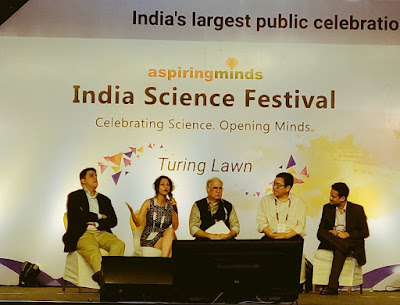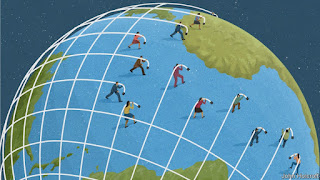Expertise. The judgment between art history, technology, law and market
Next week my colleague Filip Vermeylen and I are heading to Zurich for a speaking engagement on art expertise in the digital age. This colloquium is being organized by the Swiss Institute for Art Research (SIK-ISEA), Institute of Art History at the University of Zurich and the Centre of Cultural Law (ZKR) at Zurich University of the Arts (ZHdK). Looking forward to what apparently is going to be a very 'Swiss' experience as the talks will be in German, English and French with simultaneous translations!
Besides, this could not have come at a better time as we just published a paper in the Information, Communication and Society Journal that speaks directly to this topic. Basically, the premise for our talk is based on the fact that at this point, few challenge the fact that recent developments in the art world are hugely impacting the process of knowledge construction in the arts and the valorization process in the art market. According to some observers, the digital revolution has sounded the death knell of the traditional art connoisseurs who are increasingly being replaced by amateur experts such as bloggers and casual online commentators. This development is seen as part of a larger shift within an art world that is under pressure to communicate and treat the public as active consumers rather than passive recipients. Traditional intermediaries such as museums are being compelled to become more accessible and engaging with their audiences through new media platforms. The Internet as a medium of easy access, with its populist, audience-expanding interactivity allows for new actors and exchanges to emerge and play out through its 'participatory culture'. For instance, mostly young bloggers with a profile far removed from the traditional art critic now capture a large audience of online readership interested in fine art exhibitions. However, others believe that is precisely in this environment marked by a plethora of voices and its confusion on art quality (and especially on issues concerning the authenticity of artworks) that there is an increased need for trusted, trained gatekeepers with firm institutional linkages to museums, auction houses and other vested institutions.
So, Filip and I have dealt with the history of art expertise in an earlier paper, and will expand/shift our focus for the Zurich conference to gauge the impact of the Internet in shaping decisions on art value and whether the traditional role of institution as expert and the public as amateur has been reconstituted through new media. For this purpose, we draw on empirical research being conducted at Erasmus University in Rotterdam on the impact of both the traditional experts and critics and the expert amateur. In addition, we ascertain to what extent technical intermediaries can exert market power. For instance, technical innovations applied by the Art Genome Project and Art.sy rely on a characteristics-approach to establish linkages and similarities between artworks and schools. These and comparable initiatives ultimately construct rubrics of criteria that are used to determine what constitutes good art, both in terms of economics (a good investment) and from an artistic point of view (artistic value), but serious questions arise relative to which criteria are used to select the artists and artworks, and how the politics of algorithms guide and rank our searches in what constitutes as common information. In other words, how knowledge on art value is shaped by old and new experts in this digital environment remains deeply under-investigated. We therefore aim to set a research agenda and will propose some methodological tools to map and analyze these fundamental shifts in the judgment of art.




Comments
Post a Comment